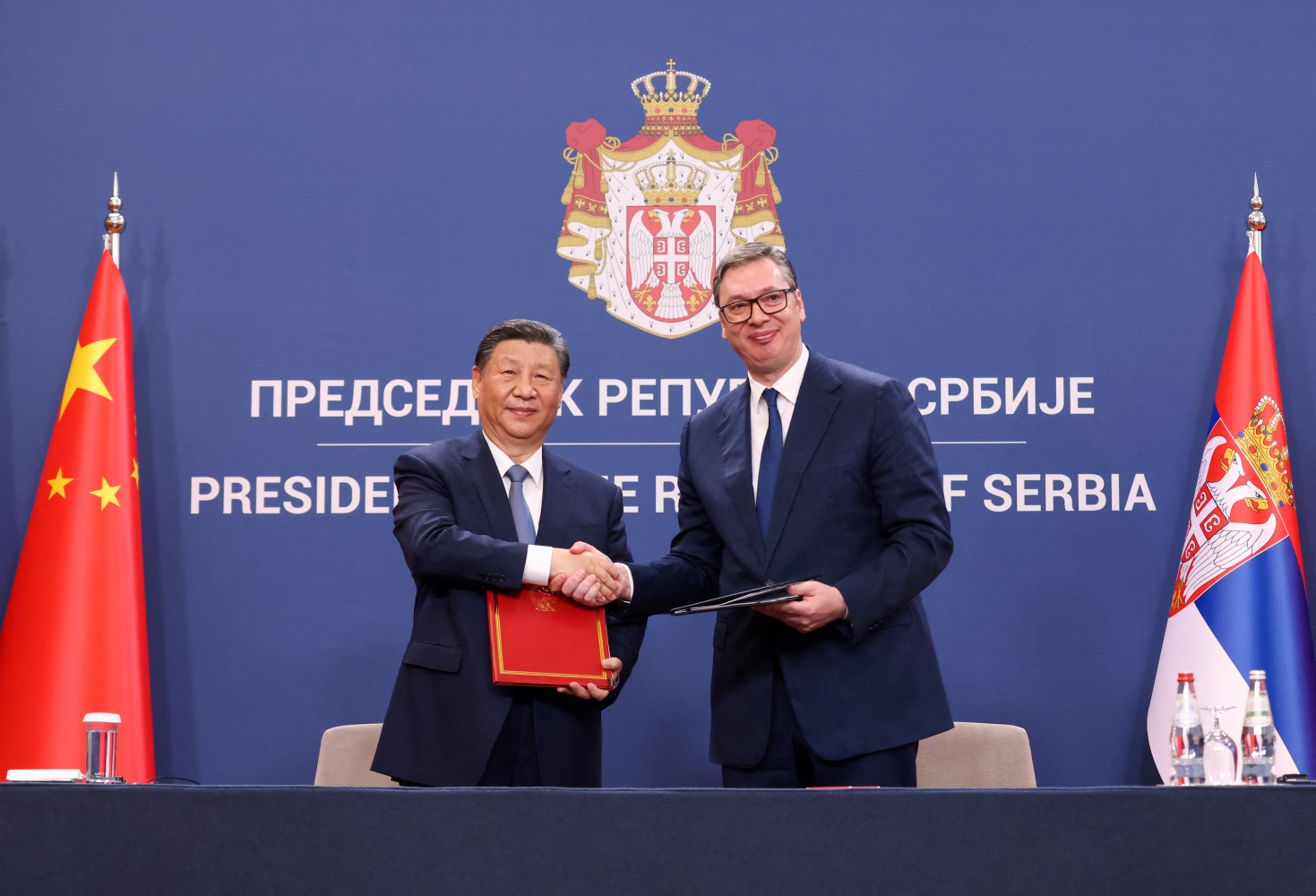
Chinese President Xi Jinping will arrive in Belgrade today for a two-day state visit.
Xi is currently visiting Europe for the first time in five years. His trip started in Paris yesterday, where he met with France’s President Emmanuel Macron and the EU Commission President Ursula von der Leyen. They pressed Xi on reducing Chinese subsidies and helping to influence Russia to end the war in Ukraine.
Xi can expect a much warmer welcome in Serbia, which he has previously called an “ironclad friend” of China. Xi’s chosen date to visit Serbia is highly symbolic, as it coincides with the 25th anniversary of the US’s accidental bombing of the Chinese embassy in Belgrade, which killed three Chinese journalists. To this day, the incident is still widely seen in China as a deliberate act of aggression by Washington.
Serbia is also an important economic partner and remains an active benefactor of China’s Belt and Road Initiative. Among Chinese-led infrastructure projects in Serbia is a high-speed railway connecting Belgrade with Hungary’s capital, Budapest. Serbia’s President Aleksandar Vucic was one of only two Western countries’ leaders to attend last October’s Belt and Road Forum in Beijing. The other country, Hungary, will be Xi’s next and final stop on his Europe tour.
Hungary’s President Viktor Orban remains the only EU leader who openly supports Beijing and, in many instances, Moscow. Hungary’s economy benefits from close ties with China, with Huawei and BYD being among the Chinese companies that chose Hungary for their base of production within the EU. Xi will use his visits to Serbia and Hungary to reassure Belgrade and Budapest of Beijing’s ongoing economic and political support and to further strengthen bilateral relations and economic ties. China’s state media will also use this opportunity to showcase China’s leading role as global power.
David is a Senior Analyst focusing on East Asia. He primarily writes on economic, political, and social issues and how they relate to the geopolitical environment.

